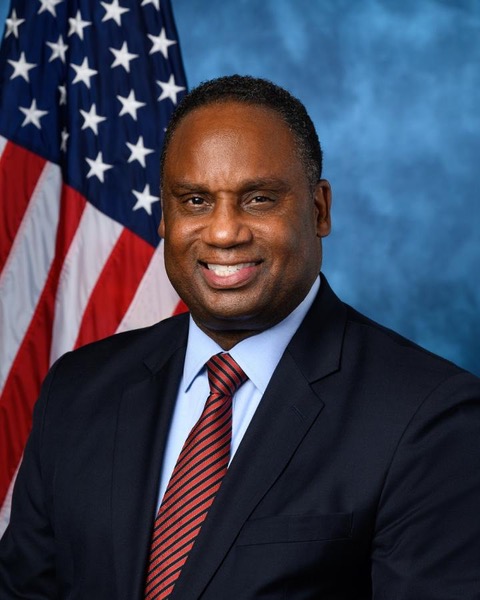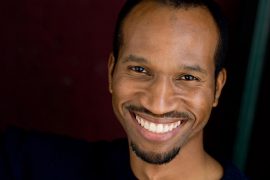Jonathan L. Jackson is the scion of a legendary Chicago civil rights and political family.
The freshman Democrat’s father is Jesse Jackson, the civil rights leader, former shadow senator and two-time presidential candidate. His mother is Jacqueline Jackson, a civil rights leader in her own right. And his brother, Jesse Jackson Jr., was a longtime Democratic member of the House, whose tenure ended in a conviction and prison time for campaign finance violations.
Jackson worked for stints with his father’s Rainbow PUSH Coalition, an international human and civil rights organization, and has been active locally in educational and criminal justice initiatives. But until 2022, he’d otherwise avoided politics, working instead as an investment banker, a business owner and an educator.
It was only after Bobby Rush, whom Jackson calls “Uncle Bobby,” announced his retirement from the House, after 30 years representing Chicago’s South Side, that Jackson decided to enter the fray.
Jackson coasted to Congress after winning a crowded primary in Rush’s safely Democratic district. Since then, he’s shown a willingness to break with most of his party, joining calls for a cease-fire in Gaza and voting against the expulsion of indicted Republican Rep. George Santos.
“I want to make a difference,” said Jackson, who sat down in December to reflect on his family’s legacy and his first year in office.
This interview has been edited and condensed.
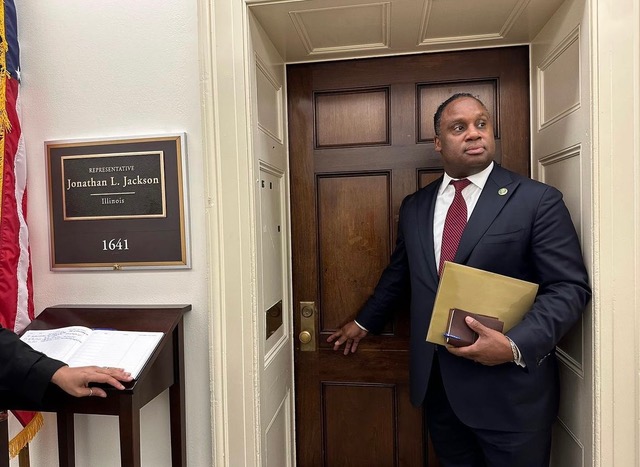
Q: You’ve been in Congress a year now. What has surprised you?
Jonathan Jackson: Time goes by fast. You have to have a sense of urgency around here. You get sworn in the first week of January, and our petitions for reelection came out in September for the state of Illinois. The final filing date was in December, so this place turns over quickly.
And then these external, existential events happen that take your attention away from what you thought was going to be your goal. I’ve got a new profound respect for all the members in this building. They are dealing with families at home, aging parents, children that need them, demanding constituents — and sometimes we all make mistakes.
I wish [members] could spend more quality time together. The way it’s set up now, you get in on a fly-in day, and you leave after the last [votes of the week]. Ironically, that was the beauty of the first week, where the speaker’s vote went on for days. We spent so much time in the chamber, and I actually met a lot of people. There was a silver lining.
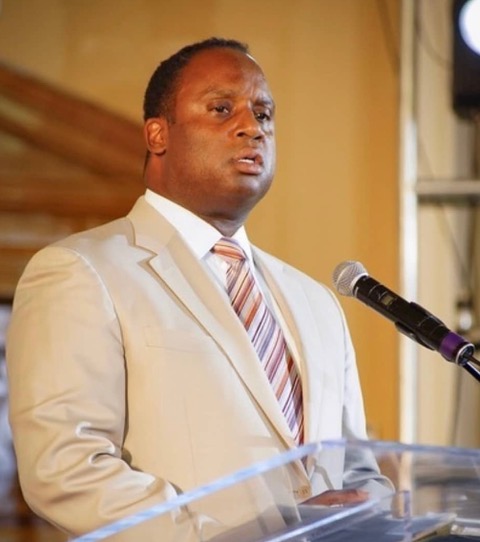
Q: You broke with most of your party recently on two big issues. You called for a cease-fire in Gaza, and you voted against expelling Santos. What was that like?
Jonathan Jackson: You can feel a little bit of the cold shoulder. “Hey, he doesn’t do everything we do when we ask him to do it.” But know your district, and know who you are. You don’t want to have pollsters and staffers tell you what you should believe.
So, for example, a cease-fire. When I got on the Foreign Affairs Committee, I wanted to get an updated view on the world, so I traveled to as many places as I could, instead of reading memos. Some of those memos have been recycled from administration to administration.
I’ve got a substantial Palestinian population in my district, and Illinois has the most Muslims per capita in the nation. In August, I went to Indonesia, to see the fourth largest country — it’s a democracy, and it’s [majority] Muslim. After former President [Trump] said disparaging things about Muslims, I could see they now have fewer students that want to come to America for an education. He’s closing our world down.
When I said cease-fire, I had just come back from Israel in September, probably a month before the horrific events of Oct. 7. I knew the choice was going to be either reconciliation or revenge, and [Israeli Prime Minister Benjamin Netanyahu] would go straight for revenge and go too far.
The pope has [called for a cease-fire], four U.S. senators, the World Health Organization, Doctors Without Borders. History will absolve me and say I made the right decision.
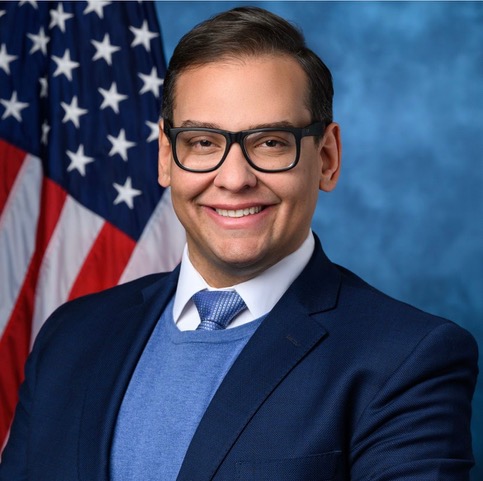
Q: And what about your vote on the Santos expulsion resolution?
Jonathan Jackson: The 3rd District of New York put him in here, and it’s the people’s house. You can only get here by the people duly electing you. George was to have a court date in September, which is nine months away, and if he’s found guilty, he could have been expelled from there.
Like, let it run its course. I don’t want to fuel or feed into this hyper-partisanship. And so on that I would say I was very conservative, not to change the [precedent] we’re going to abide by. I’m not happy with how that went down, but he’s gone. C’est la vie. Farewell.
My personal opinion is he’s a world class fraudster, like “The Talented Mr. Ripley,” but he found a home in that party. So I think they should have some introspection.

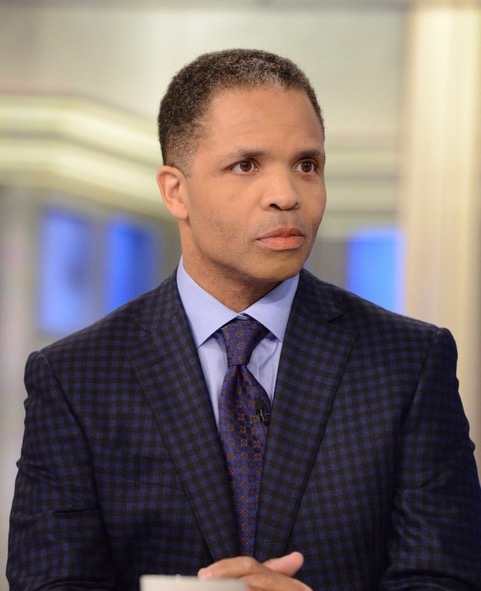
Q: You obviously come from a Chicago political and civil rights dynasty, including your father and brother. Has it been difficult to chart your own course in politics?
Jonathan Jackson: I wouldn’t say difficult. It was new and different for me. I’d been in the private sector my entire life. I had been [close to] the political process, registering people to vote and encouraging people, but I had not been in government.
I was probably, in Newton’s definition, that third force, that external force that acts upon the body. I tried to move the trajectory of which way things could go, and I was happy with that. But having come here, it’s been an amazing learning experience for me to see how it works, and what I can possibly do differently.
Q: What lessons did you take from your father, and how is that shaping your approach?
Jonathan Jackson: You have to believe that peace is possible. Peace is worth sacrificing for. You have to break the cycle of violence, and no community has a monopoly on pain. Pain is part of the human experience.
Once I asked my father, “Why don’t you go to law school? You’re always involved in these different issues. Why did you choose the ministry?” And he said, “The ministry is bigger than law. Law is a derivative of religious principles.” He also told me, “You live in your faith, but we live under the law.”
That’s one of the things that was so profound about the Rev. Martin Luther King and breaking the backbone of the slavocracy. We’ve looked at him as the leader of a third American Revolution in our family.
George Washington changed the relationship between the British government and the newly formed American government, Abraham Lincoln changed the relationship between the northerners and southerners, and the Rev. Martin Luther King changed the relationship between Black and white.
He was a minister who was also a constitutional scholar, advocating for personal salvation and social salvation. How do you save the soul of the nation? And he ultimately sacrificed his life.
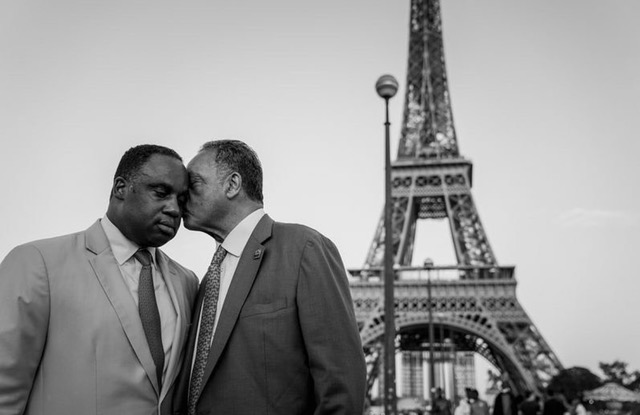
Q: How are you similar to your father, and how are you different?
Jonathan Jackson: The things that are similar about me? I’ve traveled with my father, and I’ve seen him bring back prisoners of war where nations weren’t talking. Without the blessing of President Reagan, we went to Damascus to see President Hafez al-Assad and bring back Lt. Robert Goodman. We went to Iraq when George H.W. Bush and Saddam Hussein weren’t speaking and brought back human shields. I’ve seen that ministry, that third arm act on the body.
I went to jail with my father in 1986 here in D.C. [for protesting outside] the South African Embassy. The United States called Nelson Mandela a terrorist. Mandela didn’t change. The law changed. The information changed.
What do I do differently than my father? I went to business school, and he went to the seminary. He’s dedicated his entire life to public service. I’ve not had that full commitment as long as he has. But I’m here now, and I hope to make him proud — he and my mother, an activist couple that made a difference.
Quick Hits
Last book you read?
Major Taylor’s autobiography, and then I started rereading Jack Johnson’s autobiography. Two of the biggest sports in that era were cycling and boxing.
In politics, can the ends justify the means? When confronted with issues of war, I think you have to be very careful about that because while having a strong defense, you have to plant the seeds for reconciliation.
What is your least popular opinion?
I’m a big fan of Ulysses Grant. And I think the history of John Brown should be revisited. When you mention his name, some people bristle. I don’t think they know his story.
Your closest friend across the aisle?
I really respect French Hill and Tim Burchett, and I think I’m going to be very great friends with Virginia Foxx.
America’s best president?
Lyndon Johnson, Abraham Lincoln, George Washington. We have to look back on the work of President Jimmy Carter, who was guided by his principles. And Richard Nixon did a lot with the African American community on emphasizing black capitalism.
The post Jonathan Jackson, son of civil rights leaders, charts his path in Congress appeared first on Roll Call.

